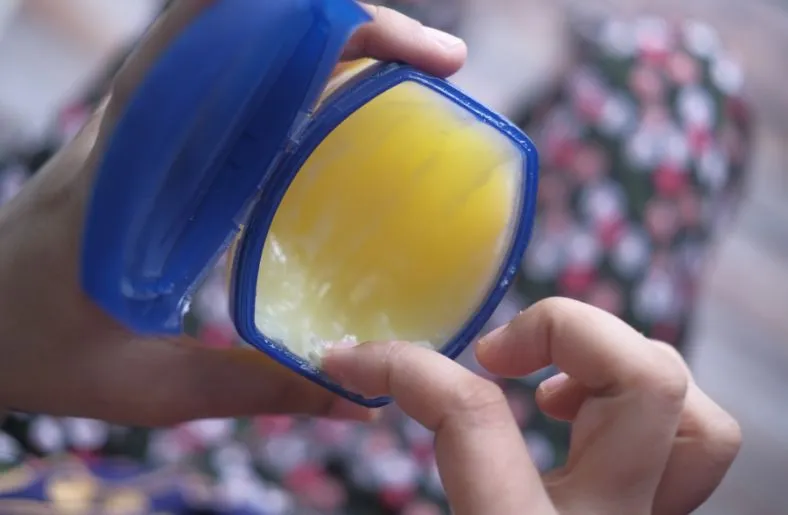Metal roofs are known for their durability and longevity, making them a popular choice for residential and commercial buildings. However, like any other component of a structure, they require proper maintenance to ensure they continue to perform optimally. One aspect of metal roof maintenance is lubrication, which can help prevent issues like rust and ensure that the roof remains in good condition. While there are various lubricants available, some might wonder “Is Vaseline a good lubricant for metal roofs” which is a common household product, can serve as an effective lubricant for metal roofs.
In this comprehensive guide, we will explore the properties of Vaseline, its potential benefits and drawbacks for metal roof lubrication, and alternative options for maintaining your metal roof.
Table of Contents
What is Vaseline?
Vaseline, a brand name for petroleum jelly, is a semi-solid mixture of hydrocarbons derived from petroleum. It has been used for a wide range of purposes, from skincare to household lubrication, due to its lubricating and moisture-sealing properties.
Vaseline is known for its ability to create a protective barrier that locks in moisture and prevents drying and cracking.
The Role of Lubrication for Metal Roofs
Before we delve into the question “Is Vaseline a good lubricant for metal roofs”, let’s understand why lubrication is important for these structures:
- Preventing Rust: Metal roofs are susceptible to rust and corrosion, especially in environments with high humidity or exposure to saltwater. Lubrication can create a barrier that helps protect the metal surface from moisture, preventing rust formation.
- Minimizing Friction: In some cases, metal roof panels may expand and contract due to temperature fluctuations. Lubrication can reduce friction between these panels, preventing them from rubbing against each other and causing wear.
- Maintaining Flexibility: Over time, metal roofs can become less flexible, which can lead to cracking or failure during extreme weather conditions. Lubrication can help maintain the roof’s flexibility, ensuring it can withstand expansion and contraction.
- Sealing Joints: For metal roofs with movable joints or seams, lubrication can help create a seal that prevents water infiltration. This is crucial for preventing leaks and water damage.
Is Vaseline a Good Lubricant for Metal Roofs
Now, let’s examine whether Vaseline is a suitable choice for lubricating metal roofs:
Pros of Using Vaseline:
- Waterproofing: Vaseline creates an effective waterproof barrier that can help prevent moisture from reaching the metal surface, reducing the risk of rust and corrosion.
- Ease of Application: Vaseline is easy to apply, and you can use a brush, cloth, or your hands to spread it over the metal surface.
- Readily Available: Vaseline is a widely available product found in most households, making it a convenient option for quick roof maintenance.
Cons of Using Vaseline:
- Limited Longevity: Vaseline is not a long-lasting lubricant, especially when exposed to the elements. It tends to degrade and wear off relatively quickly, requiring frequent reapplication.
- Dirt and Debris Buildup: Vaseline can attract dirt and debris, which can adhere to the roof’s surface and create a messy appearance over time.
- Temperature Sensitivity: Vaseline can become extremely soft and runny in high temperatures and may harden in cold weather. These temperature-related changes can affect its effectiveness as a lubricant.
- Potential Roof Staining: Depending on the roofing material and the amount of Vaseline used, there is a possibility of staining or discoloration over time.
- Not Specifically Designed for Roofing: Vaseline is a general-purpose product, and it may not provide all the benefits and protections that a specialized roof lubricant can offer.
- Fire Hazard: Vaseline is a petroleum-based product and can be flammable. Using it on a metal roof may pose a fire risk, especially in areas prone to wildfires or where open flames are used.
Alternative Lubricants for Metal Roofs
While Vaseline may have some advantages as a temporary solution, there are alternative lubricants specifically designed for metal roofs that offer more reliable and long-lasting protection. Here are some options:
- Silicone-Based Roof Lubricants: Silicone-based lubricants are designed for use on metal roofs and provide excellent water resistance, UV protection, and long-term lubrication. They are less likely to attract dirt and debris and maintain their effectiveness in various weather conditions.
- Graphite-Based Lubricants: Graphite-based lubricants offer excellent lubrication and are particularly useful for metal roof seams and movable joints. They are effective in preventing friction and wear.
- Lithium-Based Grease: Lithium-based grease is a versatile option suitable for many metal roof applications. It offers good protection against rust and corrosion and can withstand temperature variations.
- Specialized Roof Coatings: Roof coatings are formulated to provide comprehensive protection for metal roofs. They can include rust inhibitors, UV protection, and waterproofing properties, making them an all-in-one solution for roof maintenance.
Best Practices for Metal Roof Lubrication
Regardless of the lubricant you choose, here are some best practices for lubricating your metal roof effectively:
- Clean the Roof: Before applying any lubricant, ensure that the metal roof is clean and free of dirt, debris, and rust. Cleaning the roof surface ensures better adhesion of the lubricant.
- Inspect for Damage: Check for any signs of damage, loose screws, or missing fasteners. Address any issues before applying lubrication.
- Apply Evenly: Whether you’re using Vaseline or a specialized lubricant, apply it evenly to the metal surface, paying special attention to seams, joints, and areas prone to friction.
- Follow Manufacturer Recommendations: If you opt for a specialized roof lubricant, follow the manufacturer’s recommendations for application, reapplication intervals, and maintenance.
- Regular Maintenance: Lubrication is not a one-time task. Plan for regular maintenance to ensure that your metal roof remains in good condition. The frequency of maintenance may vary based on the lubricant used and environmental conditions.
- Safety Precautions: Exercise safety precautions when working on your roof. Use appropriate safety gear, work with a partner if needed, and take necessary precautions to prevent falls or accidents.
- Consider Professional Help: For complex metal roof systems or extensive maintenance needs, consider hiring a professional roofing contractor experienced in metal roof maintenance.
Related Guide: The Ultimate Guide: How to Grease Vortex Hubs (2023-2024)
Conclusion
Is Vaseline a good lubricant for metal roofs? Well, Vaseline does have some benefits as a temporary lubricant for metal roofs, but it is not the most practical or long-lasting option available. Metal roofs require proper maintenance to prevent rust, reduce friction, and ensure their longevity. Specialized lubricants designed for metal roofing applications offer superior protection and durability, making them a more reliable choice.
When it comes to the care and maintenance of your metal roof, it’s essential to choose the right product and follow recommended practices. Regular inspections, cleaning, and appropriate lubrication with specialized products will help keep your metal roof in excellent condition, protecting your investment and ensuring the roof’s continued performance and durability.

